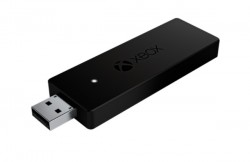Another week gone, and we’re mid way through June, which is mid-way through the year. 2015 has gone by pretty quickly, I have to say, maybe too quick at times. Much like this somewhat shorter than usual WNR, which I’m sure you’ll get through pretty quickly (maybe too quickly) too.
Here it is …
![]()
The EU is pressing ahead with its plans reform copyright laws, to make it fairer to consumers and remove many of the restrictions that exist within EU countries. The European Commission VP in charge of this new copyright strategy, dubbed the Digital Single Market, says that current copyright laws allows rights-holders to place restrictions on legal content, restrictions that Andrus Ansip says are driving people to piracy.
Instead of tougher laws that punish downloaders, something that Ansip says is untenable (68% of film viewers in the EU download pirated movies – “to put 68% of people in jail is not really a good idea,” says Ansip), he wants legislation that encourages the spread of legal content, even if it means banning things like geo-blocking within EU countries.
It’s something rights-holders won’t like. While all EU countries use the same currency, the wealth disparity between EU countries means that citizens in one country may be able to afford to pay more for the same content, than citizens in another country. It’s this wealth disparity that Big Content likes to exploit, by making sure they squeeze as much as possible out of each paying customer. In the worst case, an entire platform, like Spotify, could end not not being available in some countries due to these kind of artificial barriers.
So while the EU is clearly moving into the direction that brings better access to content, Big Content is heading in the other direction, still pushing ahead with content blocking to solve the piracy problem. The latest strategy involves getting domain registrars involved in the process, but Big Content is finding that it’s meeting some resistance from ICANN, the non-profit responsible for managing domain names. The ICANN says it refuses to be copyright cops, to police content, simply because it’s responsibilities simply does not extend to content. Pointing domain names to servers is basically what the domain naming system is all about – it should not matter to ICANN at least what the domain name is, and what server it is pointing to. Just because it’s easier to force registrars to do something about piracy (as opposed to going after the owners of the website), doesn’t make it right.
![]()
By finally making refunds available, Steam seems to have finally listened to customers, and it also represents a major step in the right direction in terms of digital consumer rights. However, it appears some users at least have started to abuse the refund system, which promises refunds, no questions asked, within 14 days of purchase as long as you’ve played less than two hours in the game (which describes about 95% of my Steam game library, by the way).
Some indie game developers are reporting refund rates of up to 72%, meaning more than 2 in 3 users bought the game, played it, and then got their money back. While this might indicate some kind of problem with the game, most of the time, the heavily refunded games still receive positive ratings from gamers.
This means that people may be using the refund system to play games without paying, at least for up to two hours (which while probably not enough to finish the game, but might be enough for many users). With Steam not even asking users why they’re seeking a refund, the system does sound like one that’s maybe too biased towards the consumers, something that rarely happens with digital goods.
The problem has become so bad, that some developers are even thinking of adding DRM to their game, something that they would never have considered in the past. And this is a development that benefits nobody, really.
There has to be a middle ground though, one that gives consumers the same rights with digital goods as they have with physical goods, but also ensures that people cannot abuse it as a way to play games without paying.
——
The NPD report for US video game sales in May has been released, and the PS4 is back on top after temporarily handing over the crown to the Xbox One in April. While Xbox One sales were up on this time last year, it just couldn’t sell enough units to beat the PS4, which but for a few months here and there (admittedly during some important months, such as during the holiday sales period), has been on top pretty much this entire generation.
Things might stay the same in June again though, despite Microsoft releasing a new 1 TB version of the console (and permanently dropping the price of the 512 GB version to $349). What may have a slightly bigger effect on Xbox One sales, eventually, might happen after the release of Windows 10. With built-in game streaming support (with the ability to stream Xbox One games to any Windows 10 device, be it your PC, laptop or Surface tablet), the new operating system from Microsoft will aim to further unify the Windows and Xbox platforms. So the release of a wireless PC adapter for the Xbox One controller comes just at the right time.
——
Alright, that’s that for the week. Have a good one!




